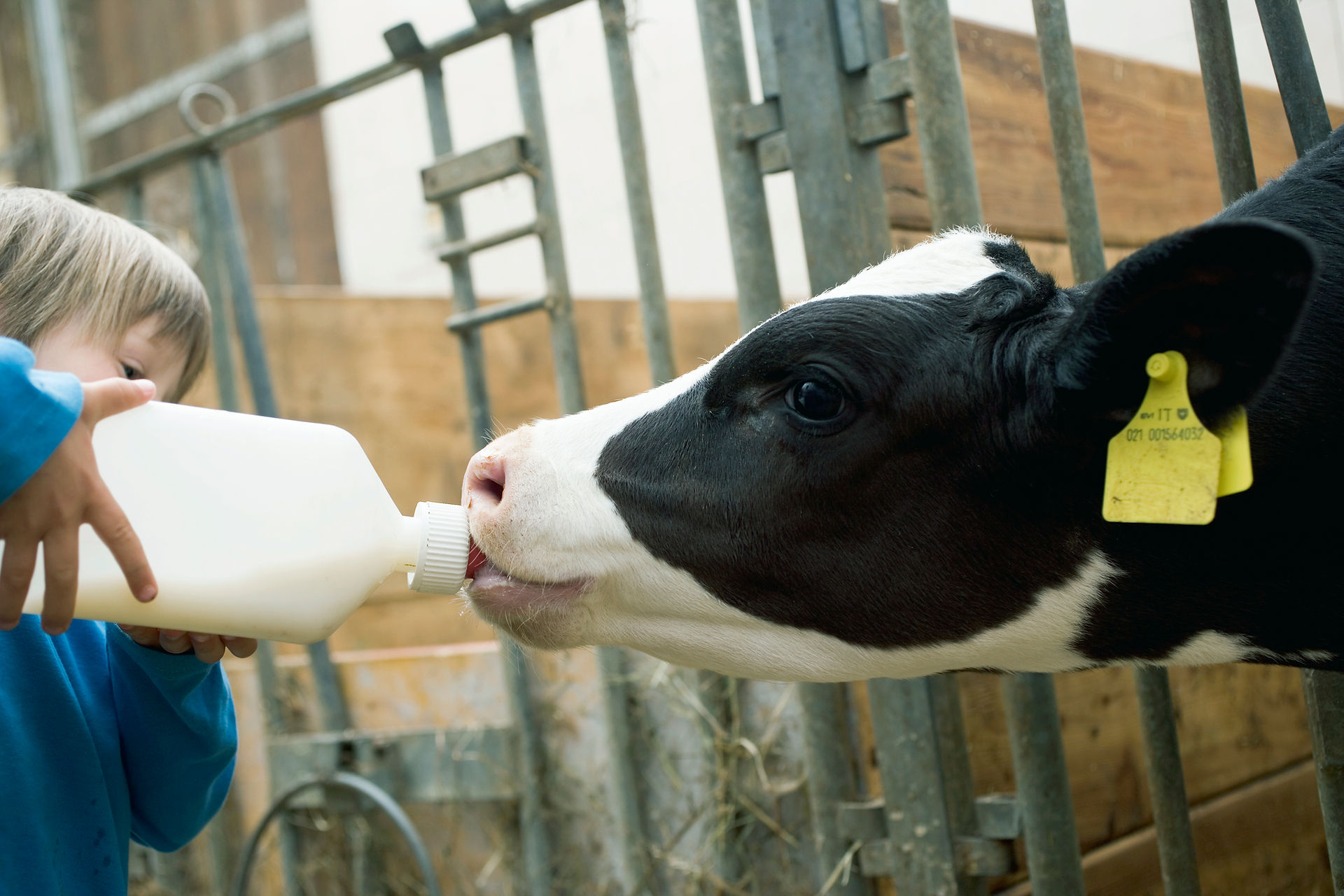
Dairy Cows Need Care and Comfort

HEALTHY COWS ARE HAPPY COWS
Dairy farming focuses on raising cows for the production of milk and other dairy products. The care of dairy cows is an important part of successful dairy farming. Dairy farmers take excellent care of their cows, providing their animals clean and comfortable housing, fresh water, food and medical attention when necessary. Dairy farmers know that healthy, happy cows produce more high-quality milk so the animals’ wellbeing is a farmer’s top priority.

DAIRY COW COMFORT
Cows require a lot of time to rest and digest their food, so dairy farmers provide cows with a variety of bedding options. Some of the products used include sawdust shavings, sand, dried manure that’s been pressed and sanitized and some barns even have waterbed-style mattresses.
Keeping dairy cows cool, especially in the summertime is important. Farmers equip their cow barns with fans and sprinklers or mister systems. Tunnel barns are long buildings that have fans at each end to pull air through the barn and out the other end to keep temperatures cool. A freestall barn provides cool shade during the summer and protection from the rain and elements. Cows are able to walk around the barn for exercise, get something to eat or drink and then lie down in a bed whenever they want.

FEEDING AND DRINKING
Dairy cows can eat up to 100 pounds of food per day. Some dairy farmers allow their cows to graze on grass or provide them alfalfa hay, but many farmers also choose to supplement their cows’ diets with mixed ration feeds including corn, soybeans, brewers yeast and other grains to provide additional nutrients and fiber. Many farmers employ a nutritionist who will formulate feed rations and a specific diet for cows based on their age, weight, if they’re milking or dry, or if they have any other health considerations.
Water is of vital importance to dairy cows. Cows can drink as much as 50 gallons of water each day -About a bathtubs worth. This makes it important for dairy cows to have a clean and constantly accessible water supply.

MEDICAL CARE
Cow care in dairy farming also requires medical assistance. Dairy farmers work closely with their veterinarians who perform regular herd checks to make sure the cows are healthy. Depending on the herd size, a vet may visit monthly, weekly or even daily.
When dairy cows get sick the vet may prescribe medicines like antibiotics. Those medicines are carefully administered and closely regulated and the treated cows are separated from the rest of the milking herd so that their milk never reaches the food supply.
Newborn and young calves are housed separately from heifers and adult cows so they can receive proper nutrition, medical care and protection from accidental injury by larger cows. Calves are bottle-fed for several weeks to months until they’re weaned and eventually given feed like older cows. They also receive vaccinations to protect them from disease.

